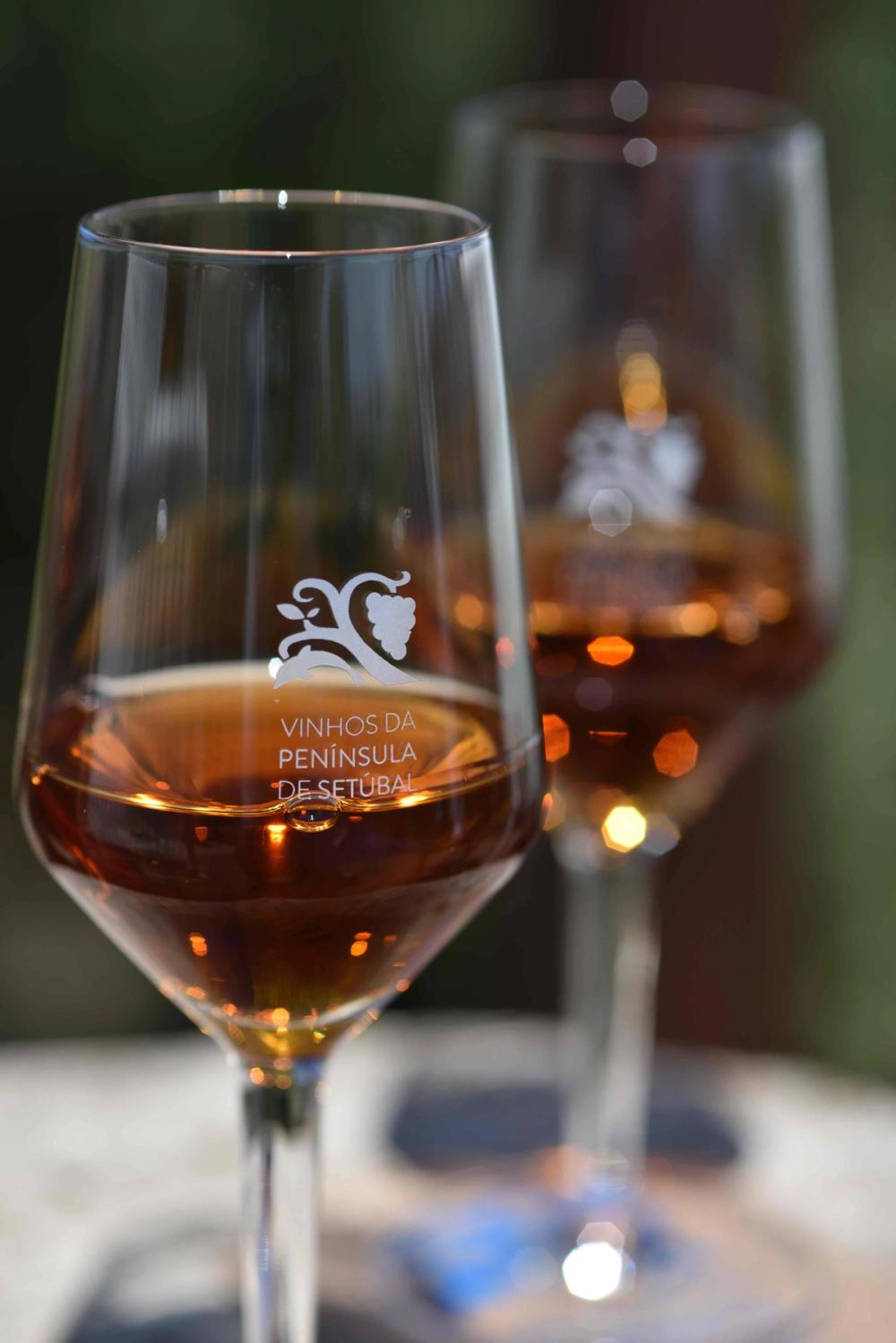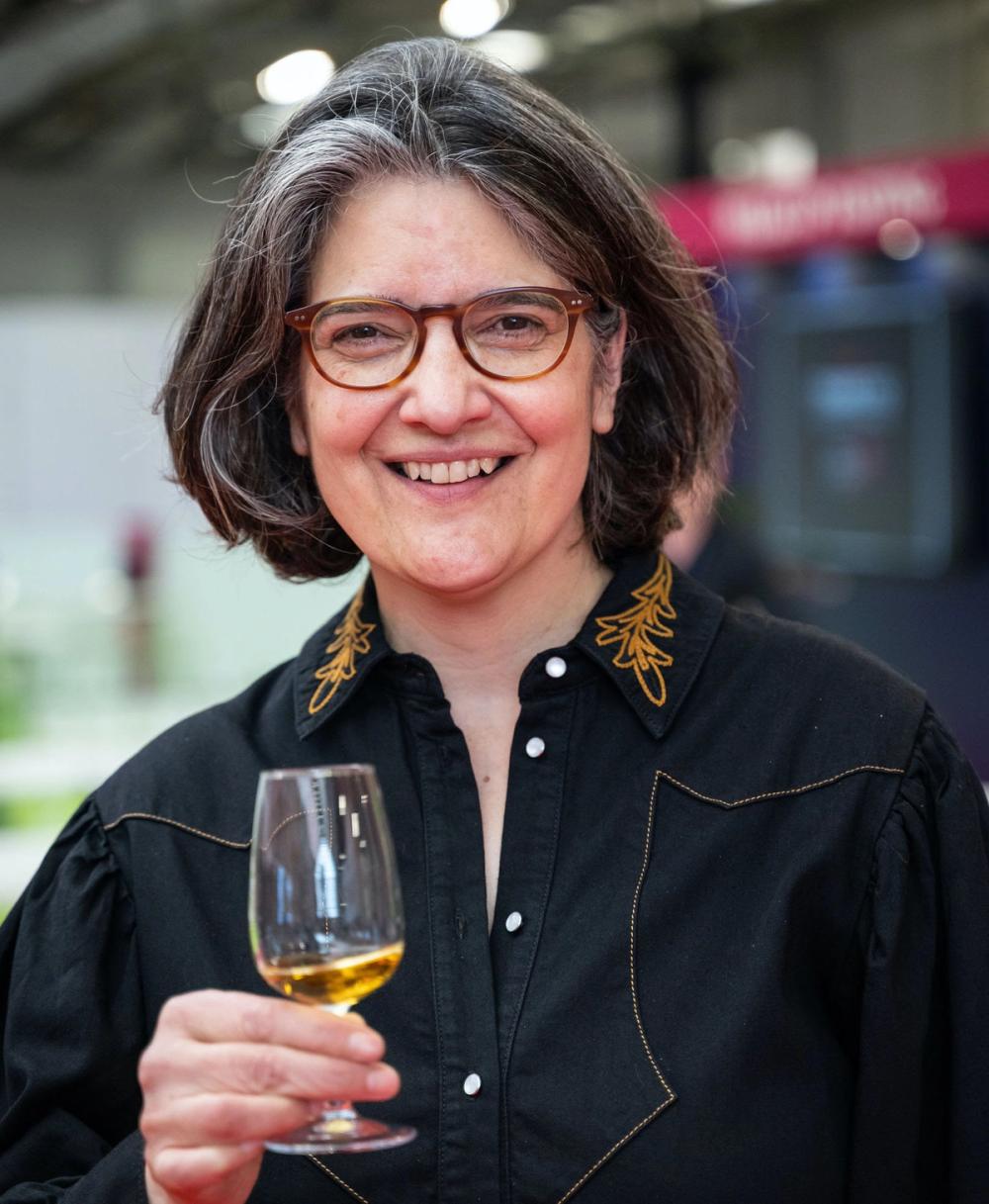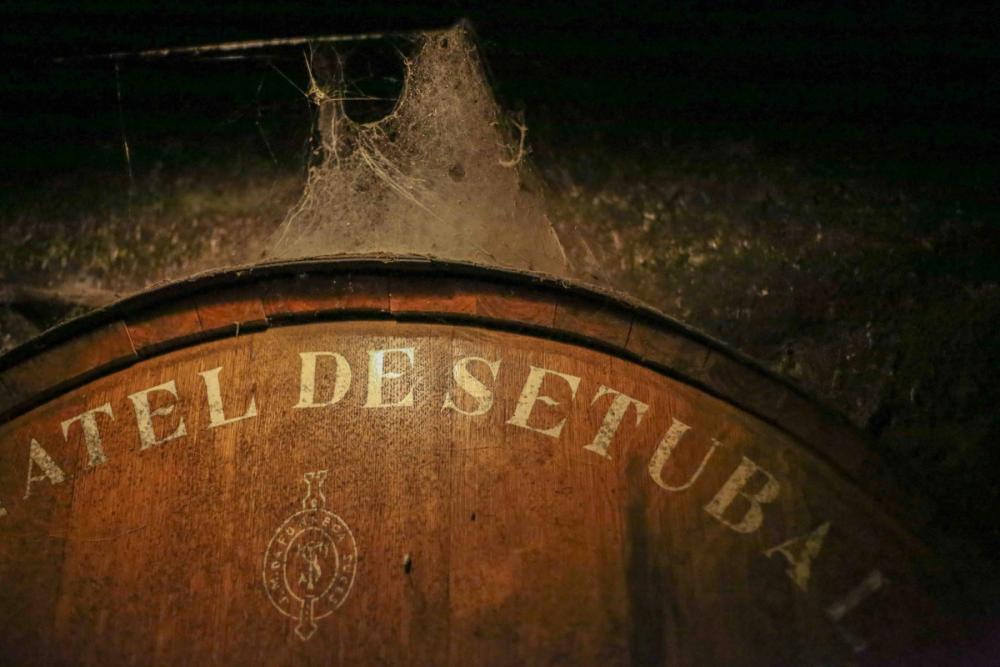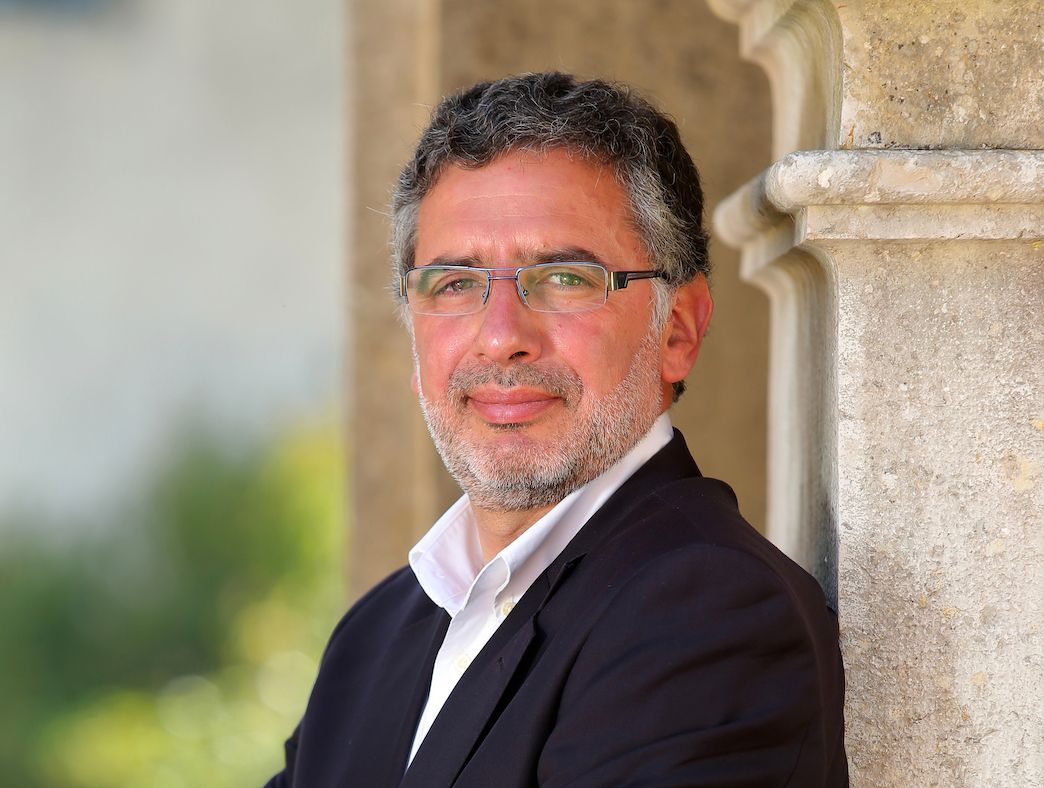Can you tell us about the Setúbal tasting you have coming up as part of the Big Fortified tasting event on April 23 - what are you doing?
For the second year, the Setúbal Peninsula is participating as a region, gathering several producers, all showing Moscatel. This year, we are exhibiting with 13 different wineries - a very diverse showcase of what our Protected Denomination of Origin “Setúbal” produces. This P.D.O. includes two fortified wines: P.D.O. Moscatel de Setúbal and P.D.O. Moscatel Roxo de Setúbal.

Setúbal has a wide range of producers from small to large who are now looking to grow their exports
Respected wine writer and Portuguese wine expert, Sarah Ahmed, will host a dedicated masterclass showing eight different Moscatels from our region.
Why have you decided to work with the Big Fortified Tasting on this ?
Portugal is lucky enough to be in a unique place when it comes to fortified wines: we have four distinct styles of which Moscatel de Setúbal is one of them. It was an obvious choice for us to renew our experience with the Big Fortified Tasting. We had a very good tasting last year and expect another great one in 2024, showcasing one of the most still-to-be-discovered fortified wine.
What types of producer are taking part in terms of size and the wines they make?
The Setúbal Peninsula region is quite peculiar when it comes to the size of its producers: there are five main big producers, from family-owned to cooperatives. In the last few years we have seen more smaller to medium sized producers starting to export which has allowed the region to show more of its diversity and promote the richness of our wines.
Among the 13 participating producers, you will find productions ranging from 10,000 to 350,000 bottles of Moscatel de Setúbal.
Not all the producers from the region produce Moscatel de Setúbal, as the P.D.O. is quite limited when you look at the total size of the region. The ones exhibiting at the BFT are all within the P.D.O. limits to produce Moscatel de Setúbal.
For those that don’t know Moscatel wines from Setúbal what makes them stand out and what there point of difference?
Our Moscatels are mainly made of the Muscat of Alexandria grape (Moscatel de Setúbal DO), which brings so much acidity and freshness to our wines. It is an aromatic grape, but in our context, with our soils, the grapes themselves and the Atlantic influence, it gains so much complexity. The final wines are also determined by the blending skills of our winemakers who use different barrels, and times of ageing that all influence what can be excepetional final results.
You say Sarah Ahmed is hosting a masterclass - can you tell us more about it?

Portuguese wine expert, Sarah Ahmed, will be sharing her insights on Setúbal's fortified wines at a masterclass during the BFT tasting
Last year Sarah Ahmed, aka The Wine Detective and Portuguese wine expert, came to our region for a week to see for herself the complexity and opportunities across this diverse extended region that stretches from the south of Lisbon right down to the Alentejo coast.
She will be able to share some of those experiences as part of her masterclass at the BFT event where she will be presenting eight Moscatels de Setúbal in a masterclass entitled: ’Terroir, Time & Innovation’ between 1pm-2pm.
She will be showing some exceptional wines exploring the impact of sand vs clay and limestone soils on the flavour profile, how skin maceration and ageing times can influence the wines.. It promises to be a very comprehensive exploration of current winemaking scene in Moscatel de Setúbal.
You are now using different formats to age the Moscatels - what is being used and what do the different formats bring to the wine?
Sarah will really explore this in her masterclass where she will examine the differences and influences the different formats have be it ageing in stainless steel, wood or concrete amphoras. She will also examine what happens when fortifying with armagnac or cognac, as some of our producers are now experimenting with these different styles.

Old barrels have long been the preferred ageing format for Setúbal winemakers but some are also now using stainless steel tank and amphora and concrete
The traditional and still most common way to age Moscatel de Setúbal is using barrels. There’s a minimum legal time of ageing for Moscatel de Setúbal (18 months) and for Moscatel Roxo de Setúbal (36 months). But of course some producers decide to age longer their wines or to use specific barrels, be it old rum or whisky barrels.
What are the biggest export markets for your wines and is that changing and why`?
The biggest market for Portuguese wines in general is, by far, Brazil, and it is the same for Moscatel de Setúbal. It has been this way for the last five years and it is certainly due to the strong shared history and cultural bonds between both countries. We expect our exports to grow, or at least to keep steady in the next few years.
How important is the UK market and how are its sales doing? What else are you doing in the UK to promote the wines and the region?
The UK is also a growing market for our region, even if results are more irregular year-on-year. Nevertheless it is one of the three export markets where we have been investing for the last three years alongside Brazil and Angola.
The UK is our second market, when it comes to all the wines from the region, but in terms of Moscatel de Setúbal, there is a long way to go and to grow. For now it is the eighth destination for our Moscatel de Setúbal, so the market is moving quite low quantities. Which is why we are so keen to promote our fortified wines at the BFT event.
A big part of our work in the UK has been bringing trade people out to the region as we believe this is so key to understanding our specific and unique fortified wines. Now buyers and the trade have the chance to experience Moscatel de Setúbal wines at the BFT tasting.
Moscatel de Setúbal producers at Big Fortified Tasting
Thirteen Moscatel de Setúbal producers will be at the Big Fortified Tasting on April 23. This event promises an unparalleled opportunity to discover the diversity of Moscatel de Setúbal and its remarkable versatility.
Where: Church House Conference Centre, London SW1P 3AZ
From: 10am to 5pm
Who:
Adega de Palmela
Adega de Pegões
Bacalhôa
José Maria da Fonseca
Quinta do Piloto
Trois
Venâncio da Costa Lima
A Península de Setúbal generic table will show you wines from the following producers: Casa Ermelinda Freitas, Fernão Pó Winery, Adega Camolas, Palmela Wine Company, Herdade de Gâmbia and Casa Horácio Simões.
Register in advance (for the tasting and for the masterclass) for the Big Fortified Tasting, through the following link: Home Page | The b.f.t. The Big Fortified Tasting (thebft.co.uk).
Sarah Ahmed masterclass 'Terroir, Time & Innovation’ is between 1pm-2pm.
To know more about Moscatel de Setúbal, visit: https://vinhosdapeninsuladesetubal.org/en/
































